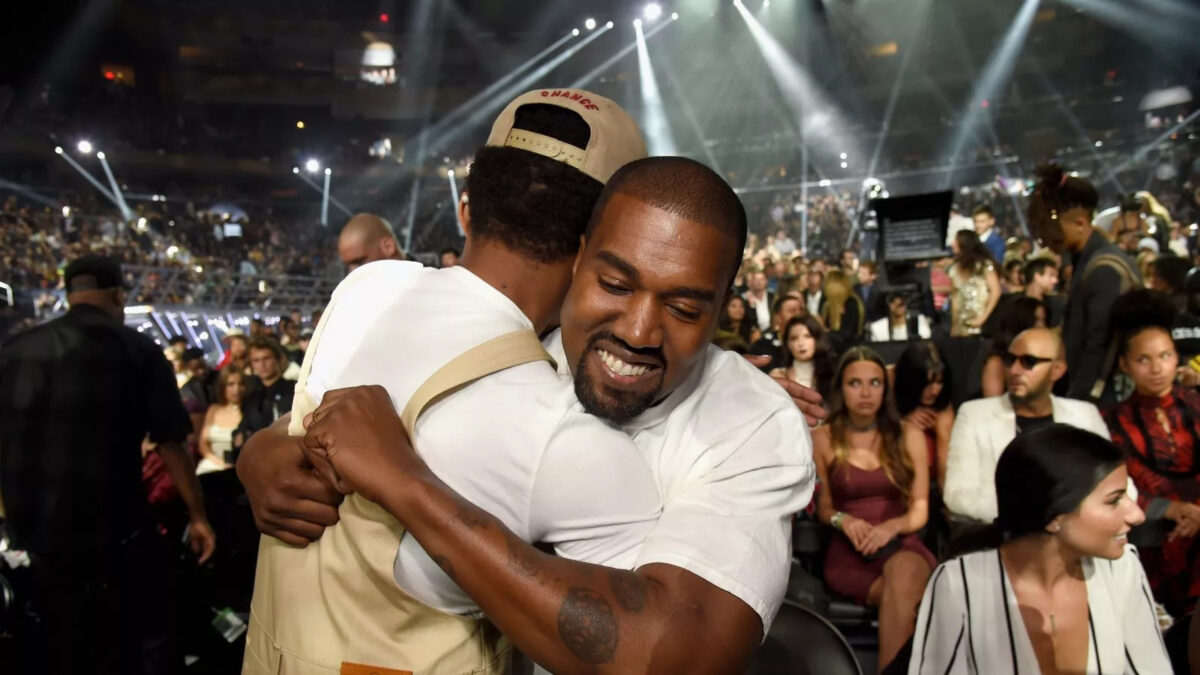Getting us men to open up and talk about ourselves in a meaningful way can be a struggle. But asking better ‘connection questions’ could prove to be a less-awkward but potentially effective solution.
Despite the success of movements such as R U OK? and the like, it can still be an incredibly awkward moment for a man to ask his male friend(s) how they’re doing. And while it’s easy to say this shouldn’t be the case, the general consensus suggests that it is still, for many of us, our reality: the awareness is there, but the solutions still aren’t.
But the times could well be changing. We’ve seen in recent years a good number of high-profile men opening up about their mental health struggles; Lando Norris, Toto Wolff and Paul Pogba are a few recent examples. A big catalyst for this has been the COVID-19 pandemic, which made a good majority of us take a step back and ask ourselves how we’re doing.
DMARGE has previously discussed ways of navigating this minefield with Jamie Gonzalez, mentor, self-help coach and founder of Limitless Living, saying, if you wish, you can reword the question to “how are things going, mate?” to take the edge off (if you want to go a slightly more casual route than “how are you, mate?”).
Former Richmond Football Club and Sydney Swans AFL player Tom Derickx, an ambassador for R U OK?, has also spoken to DMARGE about his personal experiences of coming around to the idea of opening up to his teammates, “These tough guys see it as a weakness [to talk about their emotions] but if we slowly start cracking away at them, they get to experience the benefit of opening up. I’ve been there, so I know I can slowly help them.”
But, if asking your mate how they’re going still seems like too much of an ask, predominantly because you think you’re just going to get a “yeah, why?” response, then there are still other methods you can try. They’re called connection questions, and they’re something recently brought to DMARGE’s attention by Byron Bay-based Lifestyle & Mindset coach, Blake Worrall-Thompson.
Blake’s example of connection questions relate to his personal relationship with his girlfriend. He says, “one thing that has been epic for my relationship in the first 12 months has been ‘rituals of connection’. It’s where you carve out time during your week to communicate about your relationship, how you’re feeling and talk about the day/week that you’ve had.”
“All too often we try to talk to our partner when they’re not fully present or they’re doing something else at the same time and end up building a little resentment because we’re not feeling ‘heard’.”
“Having a ‘ritual of connection’ sets the scene for both of you to be more present for a deeper and more meaningful chat.”
Blake Worrall Thompson
Now, we’re not saying you have to ask your friends some of the exact questions Blake suggests, “what is the most attractive and unattractive thing about me at the moment?” for example, but the underlying idea of connection questions certainly has its place in relationships of all types.
DMARGE reached out to Blake to ask him about applying connection questions in friendships, to find out how he would encourage men to talk openly with one another, as well as to pick his brain on how he would encourage men to stop bottling up their stuff and become more open with those around them.
Blake first admits that “rituals of connection can be used in different settings, and obviously you’re going to ask different questions in a male environment.”
He adds that within his own men’s life coaching business, he employs various tactics with his clients to help them to better themselves and become more comfortable with talking about deeper issues.

“We do challenge and champion, where each month we champion the boys on something they are doing well and challenge them on something they could do better (and offer solutions if they need them).”
“We also do win, challenge, lesson. On a weekly basis, we have the guys send us a video of their week with a win, a challenge and a lesson, and it’s proven to be a good way for us to stay up to date with how their week was, what is working and what they might need support with.”
Ultimately, Blake says, “the questions you might ask [your mates] could be dependent on where they are at with their ability to communicate and the rapport that has been built.”
“The questions we ask a lot of the boys in our programs are pretty deep, but if I was just starting out with someone then it might be a little lighter and easier for them. We build rapport that way and then start to go deeper as they feel more comfortable.”
Blake actually feels there isn’t as much of an ‘issue’ with regard to men not talking about their feelings as the media or word on the street might have you think.
“Blokes definitely bottle things up but what we’re finding is that it’s more of a social stigma than the truth. We find a lot of blokes who ‘can’t talk’ actually can, they just don’t have the right environment to feel safe, seen, supported and heard.”
Blake Worrall Thompson
“We often talk about this stuff with women (the need to create a safe, present, non-judgemental environment) but we rarely talk about this when it comes to men’s needs.”

DMARGE founder Luc Wiesman recently found a ‘safe space’ of his own when he travelled up to Byron Bay to take part in The Hoffman Process, which saw him giving up his phone and essentially switching off from his daily life, to spend seven days sharing anything and everything with a group of like-minded people.
Indeed, as Jamie Gonzalez has also said, “We can be amazing at hiding how we are really feeling out of embarrassment and our own self-judgment. When I have asked a mate how he’s really doing it has always worked out for the better; if anything it made our friendship even stronger.”
“Having that helping hand can sometimes be the lifesaver you never knew it would be for someone.”
There are numerous methods and opportunities available to men today to help them with their mental health, no matter how insignificant you may think your ‘problems’ are. Mental health can take on many forms, as Tom Derickx has previously admitted, “I was quite naive about it. I didn’t know much about it, about the symptoms of anxiety and depression.”
“Being an athlete, you kind of combine the symptoms of depression with fatigue, and think ‘maybe that’s come from training’, and you might not be aware that it’s actually a mental issue.”
So, next time you’re hanging out with your friends, don’t just talk to them about sports, cars or money – ask them about them. You’ll hopefully be surprised at their response.
Read Next
